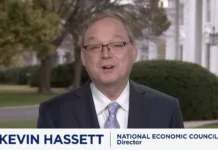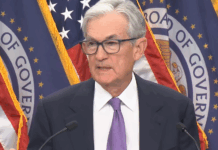最後更新日: 2025年02月18日
Jackson Hole已經係上星期五嘅事,雖然遲左,我仍然想用呢度講一講呢日央行會議嘅一個重要性。
Jerome Powell嘅演說內容大家無睇過全文都睇左過報道,頭一部份就係確定左聯儲局會將貨幣政策針對嘅重點,由壓低通脹轉為保護就業; 尾一半嘅重點,就好似Byron篇《鮑威爾Jackson Hole的含蓄勝利宣言》講,係Powell指出聯儲局成功穩住通脹預期,所以美國嘅通脹最終如「standard economic model」所預計,慢慢回歸去聯儲局嘅目標;
因此,呢篇係勝利宣言。
咁呢啲我就唔再重覆啦,反而想同大家講下同日英倫銀行行長Andrew Bailey嘅Jackson Hole演說《Reflecting on recent times》。
有趣之處,在於Bailey其實同Powell講嘅野,係大致一樣架!
Bailey嘅勝利宣言
咁我當然唔係講話聯儲局轉去保就業嗰部份,而係央行(BoE)喺維持通脹預期穩定上嘅成功,令Soft Landing (軟著陸)接近成功。但我先要指出,Bailey嘅講法係更「含蓄」嘅: 佢直情講左唔可以話「贏」住。
The second round inflation effects appear to be smaller than we expected. But it is too early to declare victory.
要知道一樣野,喺Bailey治下,英倫銀行嘅通脹分析論述入面Inflation Persistence (通脹頑固性)有個重要角色。
When we think about inflation persistence, I would distinguish between extrinsic persistence (the duration of external shocks) and intrinsic persistence in the sense of capturing the impact of the echo effects of those external shocks owing to domestic responses (second round effects).
而Bailey今次提到佢會將Persistence分成外來(extrinsic)同內部(intrinsic)兩種。
- 外來嘅就係好似烏克蘭戰爭同疫症呢啲因素,令通脹偏離目標;
- 內部就係講緊價格同薪酬制定機制因為外來影響而出現嘅改變。
對於英國現況,佢認為通脹頑固性正在減弱,因為所謂嘅次輪效應 — 即係價格因為外來因素上升,令人工同價格都近住升 — 唔算太強,同時央行成功穩定通脹,令Bailey偏向相信價格機制出現自我調整(self correction),帶動通脹慢慢回落返去目標。
Inflation expectations appear to be better anchored, which I put down in good part to the presence of independent central banks with clear mandates and nominal anchors, usually in the form of inflation targets. But, crucially, policy does have to respond to ensure credibility is maintained. Moreover, while second round effects may be smaller that does not tell us how much smaller and less persistent they will eventually end up being than in the past. On this basis, at the moment I put more weight on the first case – self-correction – but some smaller weight on each of the other two.
呢度,Bailey同Powell一樣,都係將通脹預期視為佢地嘅成功「戰勝通脹」嘅關鍵。
Transitory 雖錯 但通脹最終「會過去的」
而大家記唔記得幾年前嘅Transitory呢個字?當時各大央行都認為供應鏈問題轉眼就會得到解決,所以隨之出現嘅通脹都會一齊消散。結果,當然係佢地錯左,過去兩年全球大通脹出現。
依家「凱旋」而來,Bailey同Powell 都要回顧同回應一下呢個Transitory嘅問題。
Powell嘅講法有趣,笑下好多人上左呢頭船:
The good ship Transitory was a crowded one, with most mainstream analysts and advanced-economy central bankers on board
再直接指出當時判定係個錯誤,最後要急急加息補救:
It became clear that the high inflation was not transitory, and that it would require a strong policy response if inflation expectations were to remain well anchored.
Bailey嘅講法相對下就較具防守性。佢話要央行官員實時分到「短暫」定係「半長期」嘅通脹因素,真係要「Good luck with that 」。
As policymakers dealing with the here and now, balancing the objectives of applying the inflation target at all times and dealing with trade-off situations requires us to decide whether to look through a transitory shock or respond because it could have quasi-permanent features. In doing so of course we must distinguish between these two shocks in real time. Good luck with that as they say.
而佢更加話大通脹係難以避免,英倫銀行要做嘅係確保通脹可以穩步回歸目標
To conclude, the challenge for monetary policy of the Covid-Ukraine era could not have been to prevent the inflation happening. To attempt to do that would have been to ignore the trade-off element of our remit. Put more directly, as Ben Bernanke did in his report, it would have led to a depression and thus a repeat of the errors of the 1920s. Rather, the task for central banks was to produce an orderly return of inflation to target, with expectations anchored.
好,篇文比我想象中長左,係時候加返個總結。我同各位分享Bailey演說同Powell嘅論述相似之處,係因為我覺得今次嘅Jackson Hole係一個央行論述嘅轉捩點。未來會見到嘅係聯儲局為主嘅西方主要央行都會一方面會承認疫情初期相信通脹會係transitory(短暫)係一個失誤,但呢個失誤最終令佢地學到,只要果斷加息收緊政策穩住通脹預期,通脹最後都係「會過去的」 — 一個長啲嘅Transitory。
Update:
1. 其實Bailey喺演講指明未可以話贏,所以加返個Direct Quote分開返我嘅睇法同佢嘅講法。
本網內容全數由Patreon嘅讀者贊助
如果你都鐘意我地嘅文章,可以考慮成為我地最新嘅Sponsor !
想睇到我地最新嘅文章,可以去Telegram follow 我地 詳見《Econ記者使用說明》







